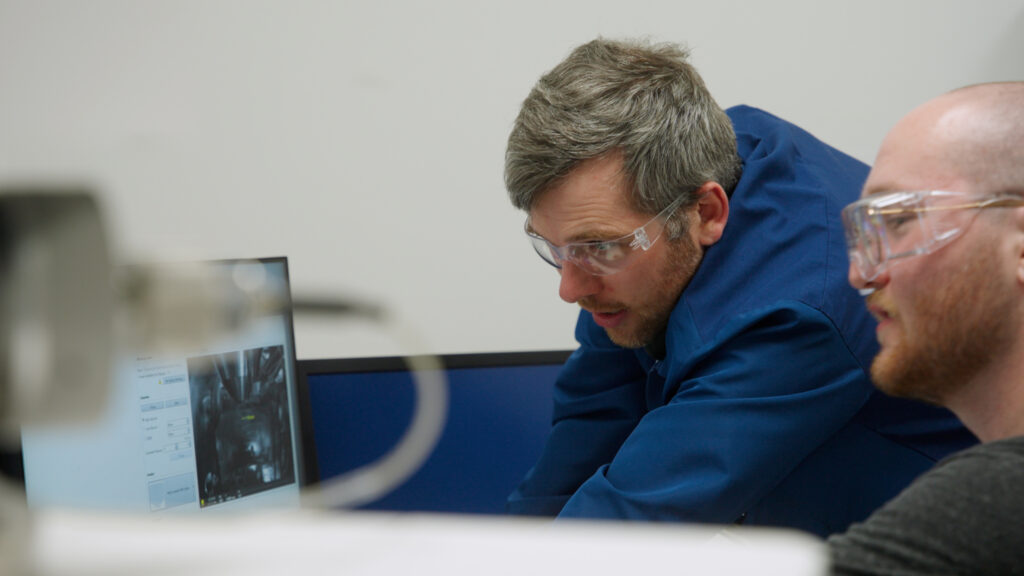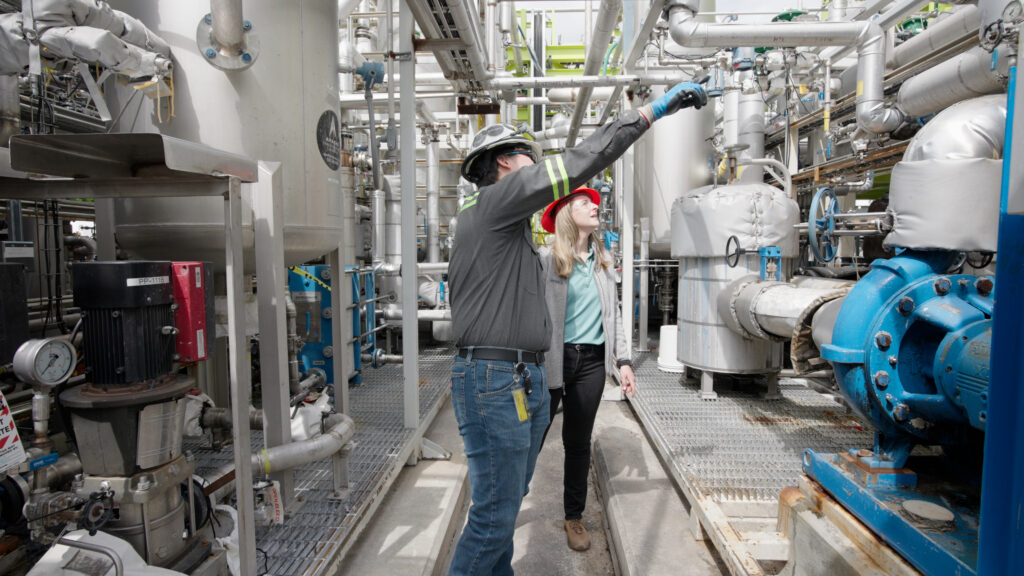At ZwitterCo, zwitterions are more than a namesake. They are the foundation of our membrane technology and an innovation in material chemistry with far-reaching potential across industries.

These uniquely structured molecules carry both a positive and negative charge simultaneously, allowing them to interact with water in highly specialized ways. While our membranes use zwitterions to unlock unprecedented fouling resistance in process separations and wastewater treatment, the same chemistry is finding exciting applications in medicine, biotechnology, and specialized materials.
Medical Implants: Mimicking Nature to Improve Patient Outcomes
In the medical device industry, zwitterionic polymers are gaining traction for their ability to dramatically improve implant biocompatibility. Researchers at the University of Sydney recently developed zwitterionic surfaces that mimic the natural cell membrane’s hydration layer, significantly reducing protein adhesion—a key trigger for blood clotting on implants like heart valves and vascular stents.
These zwitterionic surfaces act as ultra-hydrophilic (or “water-loving”) barriers, repelling unwanted biological material without triggering immune responses. Unlike traditional PEG coatings, which can wash away or degrade over time, zwitterions offer long-term stability, paving the way for safer, longer-lasting implants.
In orthopedic devices, pH-responsive zwitterionic surfaces on titanium implants have also shown promise in resisting bacterial adhesion and biofilm formation which is critical for preventing infections following surgery.
As research advances, zwitterionic surface treatments are poised to become the gold standard for implantable medical devices, offering a safer, longer-lasting alternative that enhances patient outcomes without compromising biocompatibility.
Drug Delivery: Smarter, More Targeted Therapies
Another exciting application of zwitterions is in controlled drug delivery systems. Researchers are exploring zwitterionic polymers as stealth layers on nanoparticles, helping them evade the immune system and prolong circulation times in the bloodstream. Unlike traditional materials, these zwitterion-coated drug carriers don’t trigger opsonization, the process by which the body marks foreign particles for removal.
Zwitterionic hydrogels are also being used to encapsulate and slowly release medications in a controlled fashion. Their high hydration and antifouling characteristics, a result of the zwitterions, make them ideal carriers for sensitive biologics, such as peptides or nucleic acids, which are often rapidly degraded in conventional delivery systems.
By improving drug stability and targeting precision, zwitterions are opening the door to more effective treatments for cancer, autoimmune diseases, and chronic conditions.
Anti-Fouling Surfaces: Non-toxic Surface Treatments
One of the most commercially mature applications of zwitterionic chemistry is in anti-fouling surfaces. Whether on ship hulls, biosensors, or medical catheters, these zwitterionic materials form a strongly bound water layer at the surface that resists adhesion of proteins, microbes, and other contaminants.
Unlike biocidal coatings that leach chemicals over time, zwitterionic surfaces are inherently non-toxic and function through physical, not chemical, mechanisms. This makes them ideal for sensitive applications, such as marine sensors or food-contact equipment.
ZwitterCo’s Innovation: A Water Revolution
At ZwitterCo, we’ve taken zwitterionic chemistry and engineered it into the very structure of our filtration membranes. Our membranes use a proprietary zwitterionic copolymer network to resist organic fouling by oils, greases, proteins, and other organics—even under the toughest wastewater conditions.

This breakthrough has redefined membrane performance, enabling:
- Longer time between cleanings and reduced downtime
- Recovery of water from high-strength organic streams once thought untreatable
- Greater process efficiency, product recovery, and operational cost savings in process separations
ZwitterCo membranes have already proven their value in industries like food and beverage, bioprocessing, and landfill leachate treatment, to only name a few.
The Broader Potential of Zwitterions
As zwitterions gain momentum across disciplines—from implantable medical devices to intelligent drug carriers and antifouling materials—their relevance to solving pressing global challenges becomes increasingly evident. Their extreme hydrophilicity, charge neutrality, and resistance to unwanted adsorption give them a molecular advantage in any application where cleanliness, biocompatibility, and longevity matter.
At ZwitterCo, we’re proud to be at the forefront of this zwitterion-driven transformation. We believe these molecules will not only continue to redefine what’s possible in membrane filtration—but also help shape the future of medicine, materials, and sustainability.
To learn more about how our zwitterionic technology is advancing industrial water treatment beyond, click here.
Have more questions? Reach out to a member of our team here.

